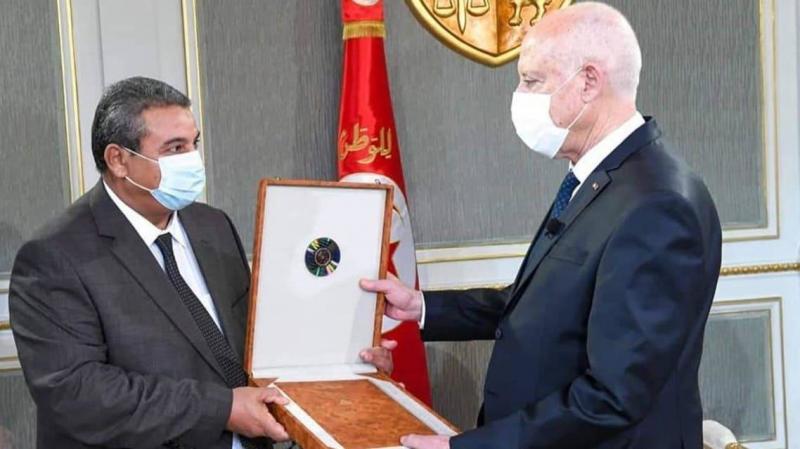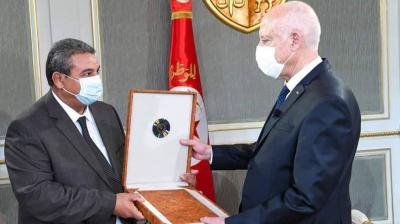The United States criticized Tunisia on Thursday for closing a television station and urged it to follow a clear path to restore democratic governance. Tunisian security forces seized equipment from the private "Zitounia" channel, close to the Ennahda movement, on Wednesday, claiming it was broadcasting "outside the law," according to the audio-visual communication body.
U.S. State Department spokesman Ned Price expressed concern and disappointment over recent reports from Tunisia regarding violations of press and expression freedom. He urged the Tunisian government to "maintain its commitments to respect human rights as stipulated in the Tunisian constitution" and a decree issued by President Saied in September. Price also urged the Tunisian president and the new prime minister to respond to the calls of the Tunisian people for a clear roadmap to return to a transparent democratic process that involves civil society and diverse political voices.
Cleansing Call and Anti-Corruption
President Saied called for cleansing all institutions from corruption to meet the people's will, while the newly appointed Prime Minister Najla Bouden announced that the formation of her government team would be announced soon. The Tunisian presidency also reported on Thursday that President Saied dismissed the governor of Gabes province from his post.
The presidency stated on its Facebook page: "The President of the Republic, Kais Saied, issued a presidential order terminating Mr. Monji Thamer's assignment as Governor of Gabes." Saied noted during his meeting with the Chairman of the Tunisian Financial Market Authority, Saleh Al-Sayel, that the classifications assigned to Tunisia by some foreign rating agencies should not be taken seriously, urging a review of the criteria underlying these classifications.
Saied added: "We deal with financial institutions, but they must also treat us as a sovereign state... we are not in the position of a student, nor are they in the position of a teacher who grades as they wish, based on a set of elements they choose."
He also conveyed a message to the outside world: "We will operate transparently and apply the law to everyone, regardless of who they are."
The economic and financial file of the country was the primary focus for the Tunisian president on Thursday when he discussed the necessary economic reforms with the Central Bank Governor Marwan Abassi, in parallel with political reforms to achieve development and Tunisia's relations with international donor bodies in the coming period. This issue will be one of the main challenges facing the upcoming government, which has its appointed head, Bouden, preparing to announce its formation during her meeting with President Saied to inform him of the progress of consultations regarding the ministerial formation.
On Wednesday, official data showed that Tunisia's foreign currency reserves declined by 9.5% over nine months, and the central bank called for the need to mobilize as many external resources as possible and to avoid cash financing, meaning printing banknotes, due to its impact on inflation, foreign currency reserves, and the exchange rate of the dinar.




